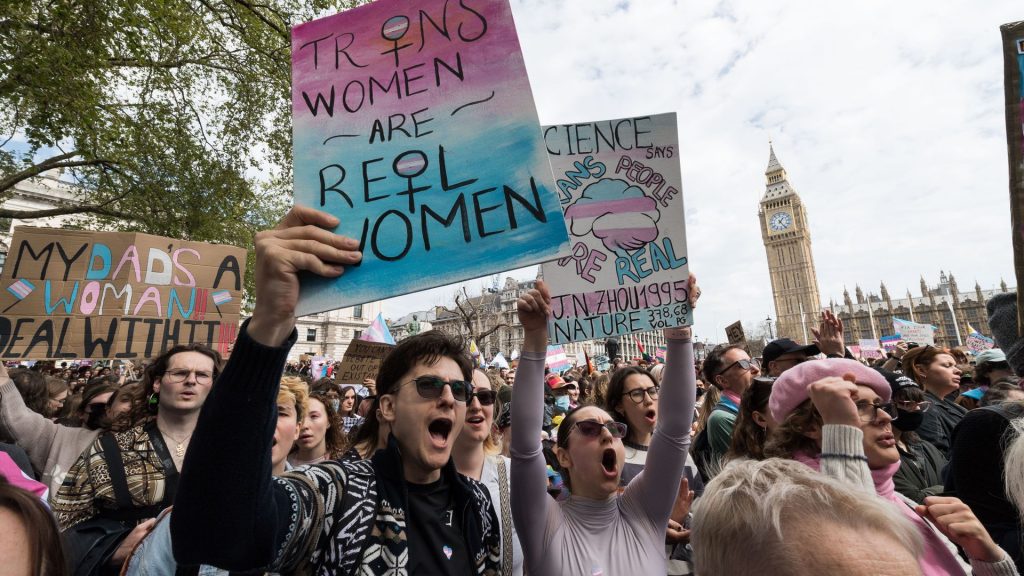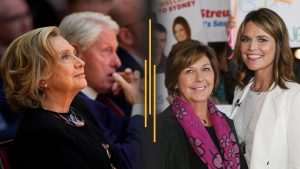From soccer fields to banks, trans bans are spreading across the UK

The April ruling by the U.K. Supreme Court that “woman” and “sex” as written in the Equality Act 2010 are referring to a biological woman is creating a ripple effect. Since the decision, transgender women have been banned from women’s soccer, using some bathrooms designated for women and other services within the United Kingdom.
What led to the UK Supreme Court’s decision?
The case focused on whether a transgender woman with a Gender Recognition Certificate is legally protected from discrimination as a woman under the Equality Act. The certificate is a legal document that recognizes a person’s gender. But in a unanimous decision, the U.K. Supreme Court ruled that the certificate does not change how sex is defined under the law.
Trans women are banned from participating in women’s soccer
Shortly after the April 16 ruling, The Football Association updated its policy to ban transgender women from playing in women’s soccer in England. The previous policy allowed trans women to participate based on legal guidance. But starting June 1, 2025, they will no longer be eligible under the new interpretation of the law.
The FA said, “We understand that this will be difficult for people who simply want to play the game they love in the gender by which they identify, and we are contacting the registered transgender women currently playing to explain the changes and how they can continue to stay involved in the game.”
The issue came to a head in November 2023, when a transgender player resigned from the women’s league after teams began forfeiting their matches rather than play against the transgender athlete, according to Sky Sports.
GLAAD, a world advocacy organization focused on LGBTQ+ rights said FA’s ban is based on anti-gay politicians. In a statement to Newsweek, GLAAD’s communications director said, “Transgender people have been participating in sports — including football — at all levels for years, following specific protocols to promote safety and fairness. Football is a globally-loved sport and should continue to welcome everyone to the pitch who wants to play, including transgender women and girls.”
Equality watchdog group reacts to ruling, releases new guidelines
Britain’s Equality and Human Rights Commission (EHRC) predicted the ruling would cause new interpretations of equality laws but said it provided clarity. In reaction to the ruling, the EHRC released this partial statement, “This judgment resolves the difficulties we highlighted in our submission to the court and in our advice to the former Minister for Women and Equalities more than two years ago. These include the challenges faced by those seeking to maintain single-sex spaces, and the rights of same-sex attracted persons to form associations.”
The EHRC also released guidance for businesses and facilities, saying transgender women “should not be permitted to use the women’s facilities.” The equality watchdog said, “A trans woman is a biological man,” and a “Trans man is a biological woman.” Where possible, it said, additional mixed-use, single-occupancy facilities should be provided to ensure access for all.
Under U.K. law, workplaces must provide single-sex toilets and, where necessary, single-sex changing and washing facilities. For public services, single-sex spaces are not required but may be allowed if they serve a legitimate purpose and follow legal guidelines. However, offering only mixed-sex spaces may result in indirect discrimination against women.
In schools, separate toilets are required for boys and girls over the age of 8 in England and Wales, and separate changing rooms are required for students over the age of 11. Scottish schools must provide separate toilets for boys and girls of all ages. Trans students should not use facilities aligned with their gender identity; alternative provisions may be needed according to the law.
Barclays, a banking giant said trans women will no longer be able to use bathrooms designated for women based on the ruling and guidance. In a media call to reporters, the bank’s chief executive made the announcement.
The Good Law Project is raising money to appeal the ruling
The Good Law Project (GLP), a nonprofit legal organization, said it is raising money to challenge the Supreme Court’s ruling. They argue the court failed to hear from trans individuals before issuing a decision with effects on trans rights. The group cites a 2002 European Court of Human Rights case, Goodwin v. United Kingdom, in which the court found that a lack of legal recognition for trans people created significant harm. That case led to the Gender Recognition Act, which allowed legal gender changes.





